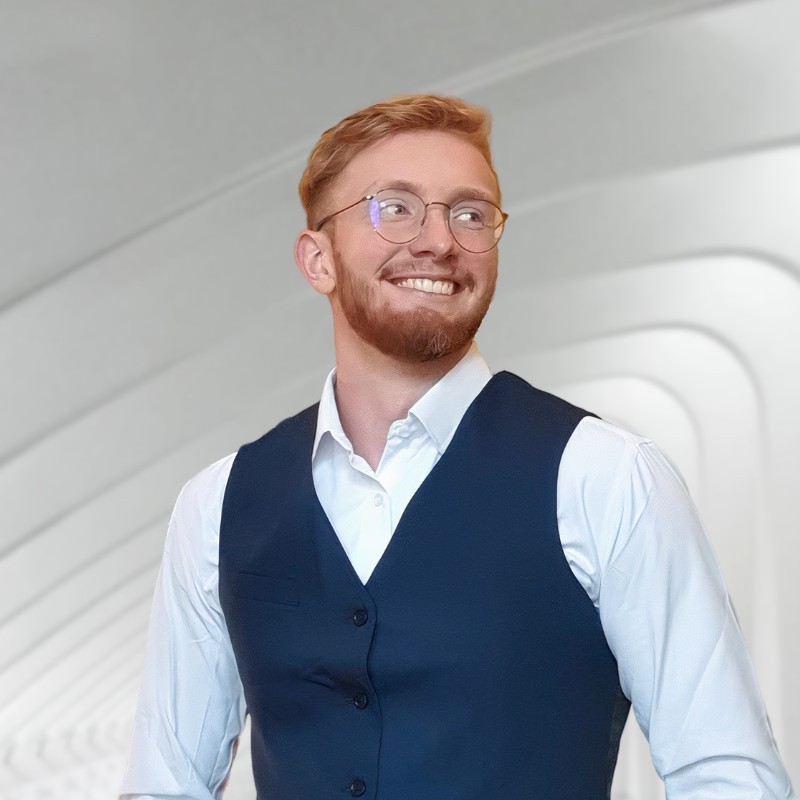News/Press
Article “Les Affaires” – Investing in inclusion: the case of Osedea

Original Article in Les Affaires
WORKPLACE DIVERSITY. When Bradley Campbell was searching for a software development job, he wasn't just aiming for a well-paying job with stimulating projects—he wanted a job where he could be himself. He found it in Montreal, at Osedea.
Originally from Prince Edward Island and now a resident of Montreal, Bradley Campbell pursued software development training after working in retail and education. He enjoyed the work but was wary of the boys' club culture in the tech industry. He identifies as gender-fluid and has previously experienced bullying in school due to not conforming to gender norms. For him, finding a work environment where he could freely discuss his life and identity without fear of ridicule or professional consequences was crucial. Today, he is part of a diverse team that includes several other LGBTQ+ individuals. When asked, "Do you feel like you can be yourself at work?" he responds with a heartfelt "Yes."
Bradley Campbell shares that when more women and LGBTQ+ individuals are involved in decision-making within a company, it becomes more welcoming for LGBTQ+ employees. "I feel more comfortable in this environment, and if I'm comfortable as a person, I can be more comfortable in my career."
An Internal Policy
After discussions with their teams, Osedea implemented a "Plus for Family" policy this spring. The plan covers 80% of the costs related to fertility treatments or adoption and offers 12 weeks of paid leave to all new parents, regardless of gender. The company has also committed to viewing all its programs through the lens of diversity, according to Ivana Markovic, the Human Resources Manager at the Montreal-based multinational. For her, diversity "cannot be the responsibility of one person; it should be valued by everyone and incorporated into all our actions." According to Ivana Markovic, this extends from leave policies to office culture, which emphasizes feedback. She believes that the inclusion journey will never truly be complete. "We are always learning. When someone says, 'It would be better if we did this,' it's a good sign because it means they feel comfortable enough to talk to us about it."
The company also collaborates with Queertech, a non-profit organization founded by and for LGBTQ+ individuals in the Montreal high-tech industry.
Several years ago, Ivana Markovic attended a conference with three transgender panelists. "I had never interacted with transgender individuals before, so I was not familiar with their realities—it really opened my eyes," she recalls. Now, Queertech collaborates with Osedea to organize various training sessions and recruitment events.
Naoufel Testaouni is the co-founder and CEO of Queertech, which was launched in 2016 as a simple networking group before expanding its activities to include awareness, support, and virtual job fairs. As a gay individual and former Microsoft employee, he found that LGBTQ+ individuals lacked visibility in the industry. He started a group on the MeetUp social network, and within a year, the group had gathered a thousand members. "Many queer and trans individuals do not always feel supported by their managers, they lack role models and networks, and they end up educating everyone else," he explains. "So, they tend to leave the industry and go where they feel more supported." In the coming years, he hopes to see more LGBTQ+ entrepreneurs and leaders in the Montreal tech space, stating, "Once we have a seat at the table, we can make a difference."
Naoufel Testaouni reminds employers of the importance of a long-term diversity and inclusion strategy that includes raising awareness among recruiters and using inclusive language in job postings and other public documents. He emphasizes the potential contribution of groups like Queertech and the Fondation Émergence, which support the creation of inclusive workplaces. "We shouldn't wait for Pride Month," he says, smiling and serious at the same time. "It's a year-round effort.

Did this article start to give you some ideas? We’d love to work with you! Get in touch and let’s discover what we can do together.



-min.jpg)


-min.jpg)
-min.jpg)



